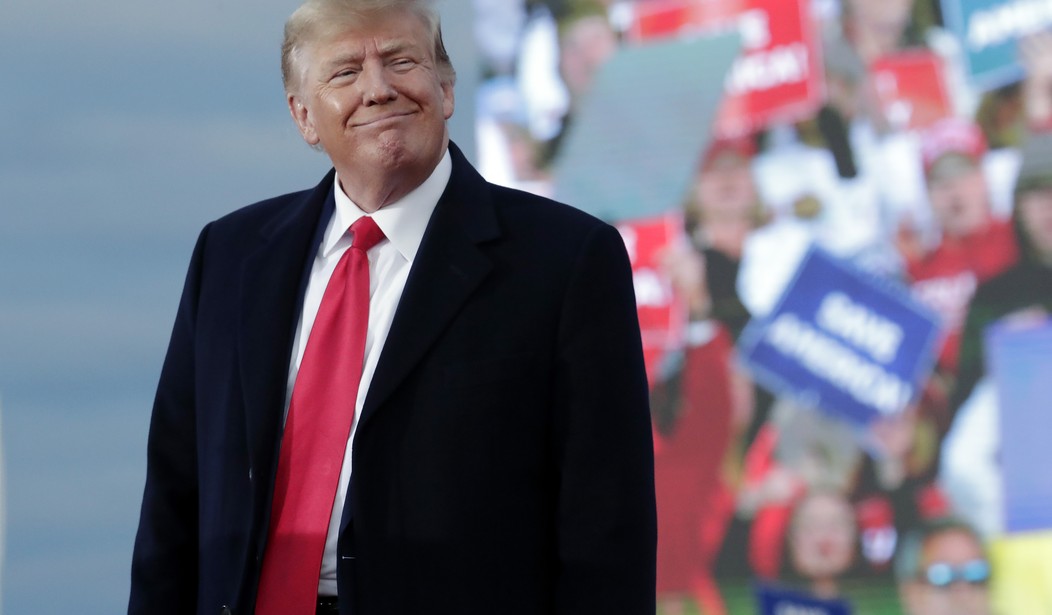After $14.4 billion spent, more than 159 million votes cast, and two years of 24-7 news coverage, the 2020 presidential election was decided by just 21,460 Biden voters in three states.
Let that sink in.
If 10,342 Biden voters in Wisconsin, 5,890 Biden voters in Georgia, and 5,229 Biden voters in Arizona changed their votes, President Trump would have secured an Electoral College tie and won reelection with a tie-breaking vote in the House of Representatives.
It’s no wonder why so many Republicans feel aggrieved by the 2020 election. The race came down to a few hundredths of a percent of the total votes cast.
The 2024 Biden-Trump rematch is expected to be just as close – with 71 electoral votes in five key states expected to decide the outcome: Wisconsin, Michigan, Pennsylvania, Georgia, and Arizona. Biden won each of these five states in 2020 by less than 3 percent of the vote. President Trump can return to the White House by adding any three of these five states to his electoral coalition.
Asian American voters in these five swing states are the greatest untapped demographic for the Trump campaign. Collectively, there are more than 1.2 million eligible Asian American and Pacific Islander, or AAPI voters, in these five battleground states, including 655,321 foreign born citizens. Historically, the Republican Party has largely conceded Asian American voters to Democrats. Two-thirds of AAPI voters say that they received no contact or couldn’t remember being contacted by Republicans, according to the 2022 Asian American Voter Survey.
"For years, I’ve urged Republicans to engage with Asian American communities in Georgia,” says Sunny Park, a member of the Georgia Republican Party's Asian Pacific American Advisory Board. "Asian American communities, in particular the Korean American community, are an untapped and receptive audience to President Trump's message. In 2020, Georgia's airwaves were flooded with political ads, but non-English language media were completely ignored by GOP campaigns."
Recommended
With little contact from the Republican Party, AAPI voters backed Biden by a nearly 2-to-1 margin in 2020, according to national exit polls.
"On Election Night, Pennsylvania Republicans brace as vote tallies come in from Philadelphia," explains David Oh, a former Republican member of the Philadelphia City Council, President and CEO of the Asian American Chamber of Commerce of Greater Philadelphia. "Yet Republican candidates spend little to no time talking with like-minded voters in Philadelphia. For example, most Asian American voters are outraged by the overwhelming violence and lawlessness caused in large part by the disregard of common-sense law enforcement and the failing economic policies of those in power. But given a choice between a candidate they know and a candidate they don’t, they either vote for the candidate they know or don’t vote at all.”
Asian Americans communities represent a small but meaningful share of the electorate in each of these five swing states. Republicans can reach these communities through non-English language advertising in Asian American media. There are active Chinese radio stations, Korean TV programs, and Vietnamese newspapers that reach a nationwide audience. And the cost of advertising on these channels is substantially lower and more efficient than mainstream media.
Filipino-Americans, the largest Asian American community in Arizona, are large enough to swing a state that Biden carried by 0.31 percent of the vote. Georgia’s active Korean American Christian community could turn the tide for President Trump. In Wisconsin, Hmong voters let down by the Biden administration can flex their political muscle.
“Michigan is a serious battleground state, and Indian-Americans are the largest Asian American community, comprising more than 50 percent of API voters in Michigan," said Hima Kolanagireddy, a first generation Indian-American, who was recently elected as Michigan's representative on the Republican National Committee. "By ensuring election integrity and engaging in a robust Get Out The Vote effort among Asian American communities, we can help President Trump flip Michigan in November."
This November, Republicans can’t just replay the same gameplan and expect a different outcome. A robust campaign focused on each Asian American community could seal President Trump’s victory.
Shawn Steel, a former chairman of the California Republican Party, serves on the Republican National Committee.

























Join the conversation as a VIP Member